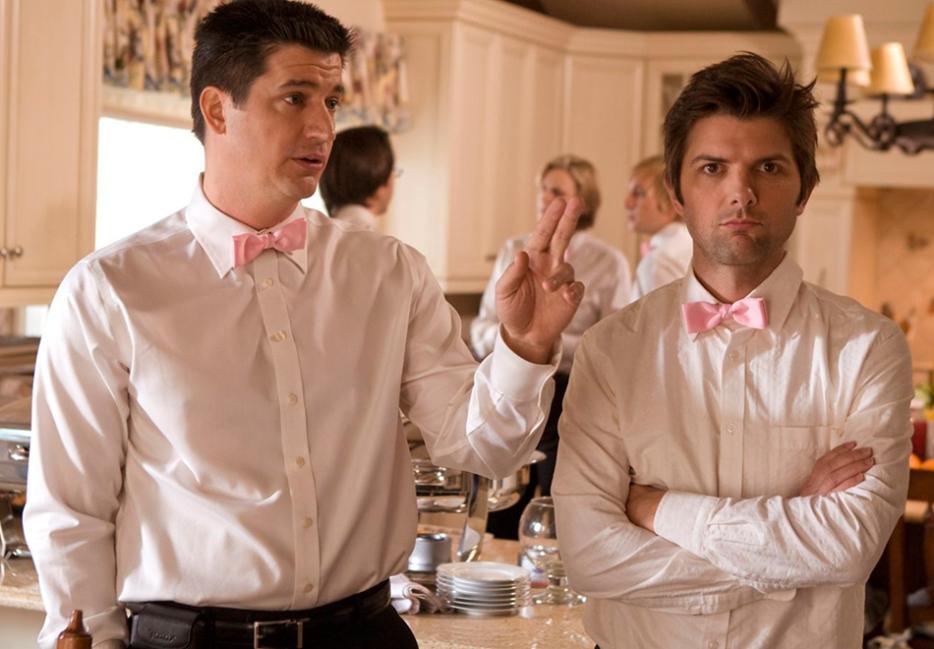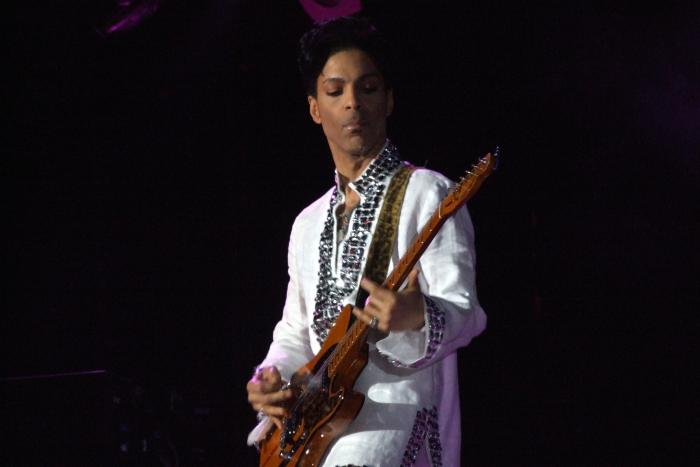I had started to tout my own invincibility, which was probably a mistake. It was early January, and I had been dealing with various personal stresses for four months, dating back to a chaotic thirteen-night trip to Mexico City in September to cover the FIBA Americas, a tournament in which the Canadian men’s basketball team would try to qualify for the Rio Olympics. They failed, dramatically, which would become a personal theme for the next little while: On a number of fronts, my life had more or less stunk since then, and I did not feel like I was handling the setbacks particularly well. Despite my wayward emotional state, I was astounded by my own vitality: I had been a poor high-school science student, and even I knew stress was supposed to weaken the immune system, but there had been barely a blip. My throat would start to tickle, only for all signs of a burgeoning cold to disappear. It seemed like everybody around me was carrying one virus or another, and yet I was unaffected.
Inevitability remains undefeated, however, and so my streak of good health ended in the middle of the month. After playing in my weekly basketball game, I noticed another instance of a strange sensation in my throat. Twenty-four hours later, I had dinner with friends from university, and my energy levels were so abysmal I had to prop myself up against the wall just to try to maintain eye contact. When I returned home, I discovered I had a fever, one that would come and go for the next five days. I was prescribed an antibiotic, which would promptly result in rather ugly patches of hives. It is possible that this was the start of a bout of mononucleosis that would not peak until March. It was dreadful. The fever meant I would miss the Toronto Raptors’ game against Brooklyn on Monday, January 18, a rarity: For the last eight years, as the Raptors beat writer for the National Post in Toronto, I’d attended all but a handful of the team’s forty-one home games every regular season.
And then the next day, I lost my job, one of a reported 90 editorial cuts in the newsrooms of the Post’s parent company Postmedia, across the country. I was, as it turned out, thoroughly vincible.
*
I joined the Post in April 2006 as … well, I’m not sure I had a job title. It might seem crazy now, but at the time, the Post was actually expanding the sports section in its print edition. For a brief period, the newspaper decided to eschew its subscriptions to the Canadian Press and Associated Press, an arrangement that was particularly tough on the sports section, since so many key events happen just before the nightly print deadline. The Post needed writers to create content in the evening to fill the section, and I was one of the young writers—twenty years old!—the section’s editor, Jim Bray, hired. I would go on to complete a pair of internships, then freelance at the paper in the autumn of 2007, before taking over the Raptors beat in January 2008. (I missed covering the team’s training camp in Italy by a few months. I got Ottawa the next two years. I’m over it now. It’s fine.)
It was a place to develop my own voice, hopefully falling somewhere in between the equally noxious poles of the inverted-pyramid news story and the in-love-with-my-own-thoughts editorial.
When things die—and, with apologies to the very talented people still working there, the Post’s sports section as it existed for more than 17 years, lacking even one dedicated reporter, is effectively dead—there is a tendency to glamourize their lives. I do not want to say that the National Post sports section was a snowflake, too beautiful for this world. It was more of a weird outlier whose sensibilities stood outside the paper-of-record aspirations of the Toronto Star and Globe and Mail or the pulpy tabloid stylings of the Toronto Sun. Sometimes, it was tough to say what those sensibilities were. In fact, the section’s occasional lack of cohesive identity is probably why so many writers have gone on to great careers, from Chris Jones to Roy MacGregor to Cam Cole to Bruce Arthur to the reigning Sports Media Canada sportswriter of the year, Sean Fitz-Gerald (and more, obviously). I’m not sure there is a stylistic through-line there, and those are just a fraction of the success stories.
For me, it was a place to develop my own voice, hopefully falling somewhere in between the equally noxious poles of the inverted-pyramid news story and the in-love-with-my-own-thoughts editorial. Not many outlets would have entertained equal enthusiasm for a profile of Raptors star point guard Kyle Lowry and a profile of Raptors afterthought Quincy Acy. I cannot speak for the section’s eight years before I got there, but during my time, the credit surely went to my two bosses, Bray and Guy Spurrier, both of whom pushed the same essential point: We were to follow the best story or the best angle, and we were to do so in a way that was uniquely in line with our own instincts. The only limit, really, was our own minds, which was in a way responsible for a solid seventy-five percent of the self-imposed professional crises I ever had. Too often, it felt like my creativity was not up to the standard the editors were setting and my colleagues were meeting. Working there was daunting, in the best way possible—the kind of place where you were free to spend a week digging into the Raptors’ inept history drafting in the second round (before taking cult hero Norman Powell last June), ignoring the flashier stars at the top of the draft. It was a joy.
*
Of those let go from the Post sports section that day: James Madge was an editor and a Day-One National Post employee; Kaitlyn McGrath was a writer and web editor; and David Alter and I were the last two full-time beat reporters, primarily covering the Leafs and Raptors, respectively. And then there was John Lott, on contract but working full-time hours (and then some) covering the Blue Jays, who lost his spot despite being quite possibly the best beat reporter in the country. Like, on any beat. It was mystifying, for a moment at least: You do not get rid of Lott, a gifted writer and photographer, just months following the most captivating Blue Jays season in two decades if your priority is producing original content. You do not stop covering the Leafs, even when they are purposely dreadful (instead of accidentally dreadful). The same could probably be said about canning me three weeks in advance of Toronto hosting the NBA All-Star Game, and with the Raptors in the midst of their best regular season in franchise history. Postmedia, of course, had every right to make those decisions, and the ones that will follow, and it surely owns enough properties across Canada to fill the Post’s modest number of sports pages. In the meantime, it probably saved some money to put toward paying down its almost $650 million worth of debt. I never studied business and I’m not in charge of making those decisions, so I really cannot judge them.
Those who have ever been laid off in the media industry will no doubt understand what it was like for me, and presumably, my colleagues. An exhausting number of people reached out, either: a) saying they appreciated my work; b) screaming about the injustice of it all; or c) offering me freelance gigs. (By the way: a) thanks; b) so it goes; and c) thanks, thanks, thanks.) It was overwhelming. I felt, at once, embarrassed to be laid off, sad about the ending of something great in my life, bitter about what was happening, and completely bewildered as to what I was supposed to do next. I knew the first thing was to call my friend Holly MacKenzie, with whom I was scheduled to record our NBA podcast for the Post that afternoon. Beyond that, all I could figure to do was bury my head in a few pillows and try to figure out what had just happened.
The handwringing about The State Of Journalism In The Country was the weird part. On one side, those bemoaning Postmedia’s apparent strategy of slashing editorial resources (valid!); on another, those still employed by Postmedia, insisting vital work can and will still be done (valid!); and then there were those stating they could see this all coming the moment an American hedge fund bought Postmedia, and especially when Postmedia bought former competitor Sun Media’s English-language assets, ensuring the company owned multiple properties in Vancouver, Calgary, Edmonton, Ottawa and Toronto (valid, but kind of annoying at the time!).
How does one even access the right words to come to terms with all of these viewpoints in real time? Even with more time in the rearview, I’m still not sure how to properly express how the absurdities of modern capitalism and the failing newspaper industry conspired to eliminate my job, and the jobs of 89 others from wonderful, capable, talented people.
I got to see the continent, from Cleveland (many, many, many times) to Miami to San Francisco to Mexico City, all because somebody thought it would be a good idea to pay me to write about basketball, my favourite sport. I got benefits, too. That was swell. I’ll miss those.
I’m left with two main thoughts: Most pressingly, can I create a sustainable life from the opportunities that have arisen since that day, or other related ones that might come up, while still fulfilling many of my non-professional aspirations? Secondly: Are those opportunities worth a damn if that original, on-the-ground reporting—a big part of so many of those 90 jobs Postmedia eliminated—is worth less and less by the day?
*
Back in January, I finished watching the great sitcom Party Down in its entirety for the third or fourth time. The show is set in Hollywood, and features a group of caterers, most of whom have outsized dreams beyond the low-level jobs they are currently filling, working different events in every episode. The show does not take the characters’ dreams seriously, with two exceptions: Casey, a comedienne whose second-season arc focuses on her going out for a small role in a Judd Apatow movie, and Henry, a failed actor best known for repeatedly spouting off a catchphrase in a beer commercial. When we meet Henry in the first episode, he has given up on that talent, and his dream.
In the fifth episode of the second season—perhaps the best of the 20 half-hours the show produced—the gang caters a party at ‘80’s A-lister Steve Guttenberg’s house. Henry’s actual talent, previously acknowledged but never displayed, is revealed in this episode. Most notably, he owns a live reading of science-fiction writer Roman’s incoherent screenplay, bringing to life a scene in the mess of a story. We also see Casey watching a film starring Henry, which she took from Guttenberg’s collection. We need only to see her awed reaction to Henry’s performance to understand his reserve of skills.
After the performance, Guttenberg is thoroughly impressed by Henry. He wants him to keep plugging away. “It’s been my experience that if you have talent, then nine times out of 10 you break through,” Guttenberg advises. Henry’s already been beaten down: “Yeah, but what if you’re that one guy?” Guttenberg, of course, has no response, because there is no response.
(Party Down is the best. Find it and watch it, now. It isn’t always that depressing, although it usually is.)
This isn’t to suggest I’m the most talented writer out there. Like almost everybody else, there are elements of the craft that I’m good at and others that I have never come close to mastering. There are pieces I’ve written that I hope stay with me as long as I am writing, and pieces I was embarrassed to publicize with a tweet because I thought I had missed the mark so badly. And there are writers—hugely talented writers—who never got the consistent opportunity I received. I was lucky to have a full-time job in this industry. Even after losing the gig, I still feel that is true.
Nonetheless, since being laid off, it has felt like the world has been closing in on me. I imagine that is a fairly normal reaction to losing your job, no matter the industry. Newspapers are closing, major media companies are slashing budgets and positions, and the remaining jobs often lack in security and/or compensation. How can you come to terms with your place in the world with that reality?
For me, it comes down to this: I got to cover basketball in Canada on a full-time basis for almost a decade, at a time when there were about a half-dozen jobs in this country, give or take, that met that description. That I would be able to get one of those jobs, at twenty-two, is ridiculous. I got to see the continent, from Cleveland (many, many, many times) to Miami to San Francisco to Mexico City, all because somebody thought it would be a good idea to pay me to write about basketball, my favourite sport. I got benefits, too. That was swell. I’ll miss those.
I have no idea what I’ll be doing at this point in next year: if I’ll have a new full-time gig, if I’ll be able to make it freelancing, if I’ll be back in school studying something completely new. Gather enough experiences like the one I just finished, though, and regardless of what is ahead, you start to feel, well, like you cannot be touched.
See also: A Newspaper Can't Love You Back.






